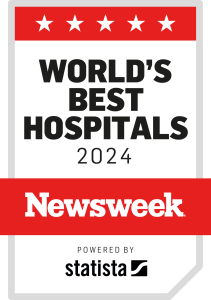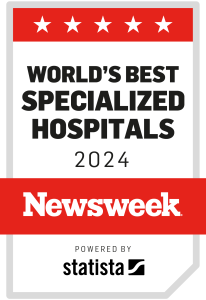PROMs: Why Putting Patients First Is Key to Success
Medical care is often seen as a one-way street. A patient picks a hospital, consults with a medical professional, gets treatment and is released, not thinking about this episode again apart from potential aftercare sessions with their specialist. But to enable better, patient-centered care and provide individuals with the most effective treatment regimes, post-care feedback from patients on their recovery process and quality of life after a care episode and turning them into active participants in the process is crucial. In recent years, this system of value-based health care has become a key pillar of the care cycle. One of its main instruments: PROMs or patient reported outcome measures.

What are PROMs and why are they important?
PROMs can be described as standard tools or questionnaires which patients themselves complete to assess their health condition at the beginning and the end of a specific care cycle. These tools are separate from communication and comfort questionnaires called PREMs or patient reported experience measures, which focus on the experiences during the patients’ stay at a medical facility. By focusing on the outcome of a treatment, PROMs add an important layer to the analysis of the efficacy of specific instruments of care and are an invaluable tool for hospitals and other medical professionals.
The increased attention for value-based health care and PROMs has also led to a realignment of where and when these questionnaires are used. In the beginning, usage was mostly limited to clinical trials and assessing health technology. Now, they are also employed in standard care cycles which encompass the breadth of medical treatments available at hospitals. One example is the PROM program implemented by the National Health Service in the United Kingdom. Data collection began in April 2009 and currently covers all hip and knee replacements at NHS-funded facilities.
Data collection and patient hesitancy hinder PROM progress
Although PROMs can be seen as a net positive for the task of establishing patient-centered health care as the new normal, uptake has been slow and problems related to a lack of standardized PROM procedures persist. This can be ascribed to factors like poor patient engagement and incentivization as well as hurdles in collecting raw data, running it through internal and external audits and disseminating the results to clinicians to improve care processes and instruments. In addition, larger governmental bodies and entities like national health ministries are often unresponsive when it comes to support and cooperation.
One way to incentivize the uptake of PROMs is by incorporating PROMs implementation as a metric within hospital rankings as a form of benchmarking for hospitals regarding their quality and outcomes of care as well as how patient centric their processes are. To this end, Statista and Newsweek developed a PROMs implementation survey in which top ranked hospitals all over the world can provide the status quo of their efforts of implementing PROMs and value-based healthcare within their institutions, the results of which were first considered for the ranking in the World’s best Specialized Hospitals 2023 and are now part of all Statista hospital rankings, such as the latest 2024 World’s Best Hospital ranking. Hospitals interested in participating in the Statista PROMs implementation survey can pre-register for the next survey cycle here.
Key takeaways:
- Healthcare is moving away from a process- to a patient-centric approach under the system of value-based health care
- To efficiently implement value-based health care, the usage of PROMs or patient reported outcome measures like questionnaires on health condition and quality of life before and after care episodes is crucial
- PROMs were originally used in clinical trials but have been introduced to routine care processes in the past years
- Hurdles for the implementation of PROMs include lack of patient engagement and issues with the collection and analysis of gathered data
- To incentivize hospitals to include PROMs in their regular care routines and speed up their uptake, the implementation of said tools is now an additional data point in rankings like Newsweek’s and Statista’s World’s Best Hospitals and World’s Best Specialized Hospitals.
Related Articles
Our reliable partner
Newsweek is an American news magazine and website that provides high-quality information to readers around the globe, reaching over 75 million people each month. First launched in 1933, Newsweek nowadays reports about topics in the fields of international issues, technology, business, culture and politics. The information channels reach from weekly published print editions in various countries to an online and mobile presence worldwide.



